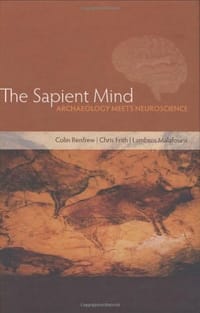书籍介绍
The turn of the twenty-first century has seen a new era in the cognitive and brain sciences that allows us to address the age-old question of what it means to be human from a whole new range of different perspectives. Our knowledge of the workings of the human brain increases day by day and so does our understanding of the extended, distributed, embodied and culturally mediated character of the human mind. The problem is that these major ways of thinking about human cognition and the threads of evidence that they carry with them often seem to diverge, rather than confront one another. 'The Sapient Mind' channels the huge emerging analytic potential of current neuroscientific research in the direction of a common integrated programme targeting the big picture of human cognitive evolution. Up to now, working in isolation, both archaeology and neuroscience have made a number of important contributions to the study of human intelligence. Archaeology, for instance has given us a good idea about where, and an approximate idea about when, Homo sapiens appeared - in Africa somewhere between 100 000 and 200 000 years ago.Neuroscience, on the other hand, has given us a good indication about where in the human brain modern human capacities (e. g. language, symbolic capacity, representational ability, theory of mind (ToM), causal belief, intentionality, sense of selfhood) can be identified and the possible neural networks and cognitive mechanisms that support them. The challenge facing us then is how do we put all these different facets and threads of evidence about the human condition back together again? This book presents the work of leading researchers from archaeology and the brain sciences, showing how a new framework that integrates two hithero isolated disciplines can provide us with a much deeper, more informative, account of where we came from, and why we developed as we did.

